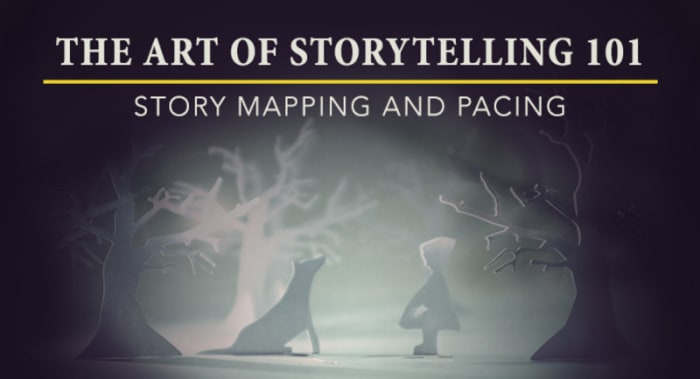6 Practical Tips for Writing Great Historical Fiction
In 2019, the New York Times Style Magazine declared that we are living in a “golden age” of historical fiction. Whatever the reason for this—be it our need to escape a horribly uncertain present or our fear of what the future might bring—as the author of six World War II-influenced novels, I am very happy that people want their fiction immersed in the past.
(Entertaining With the Past: How To Write Engaging Historical Fiction)
It is a genre, however, which can trip up the unwary writer: We are not, after all, describing times in which we have lived. With that in mind, I thought I might share a few of the lessons that I have learned, and am still learning, since I began my writing life.
No matter how far back you go, you can’t escape the present.
History, or our perception of it, shapes how we deal with the modern world and is often where we turn to make sense of the chaos. This has two consequences. Readers approach our novels, consciously and unconsciously, with that comparison in mind, putting themselves in the center of the action; wondering how they would deal with war or abandonment or loss. As writers we need to respect that impulse. This means we need to deal honestly with the situations we put our characters into and must not romanticize places, such as concentration camps and battlefields, where terrible deeds and great suffering took place.
We also need to be aware of the parallels between the “then” and the “now,” which influence both us and our readers. While I was writing about detention camps in Texas where German Americans were imprisoned for The Lost Mother, the news was full of frightened refugee children on the Mexican border. And now, in The Pilot’s Girl, I am writing about Soviet forces blockading Berlin during a period when we have all stood in horrified witness to a new wave of aggression destroying lives in Ukraine. Sensitivity has to be at the core of all that we do.
You will fall down more research rabbit holes than you knew could exist.
Research is a wonderful thing, and it is also the writer’s curse. I like to think I take an organized approach: I make a time plan; I make lists of the sources and what I am looking for; I have special notebooks set up. And then, about three days in, I get side-tracked. One set of testimonies leads to another, and they contradict each other, so you need to read yet another and another and … The research is fun and it’s vital, but the weight of details can drown your book. Which leads me neatly onto the next point.
IndieBound | Bookshop | Amazon
[WD uses affiliate links.]
Almost everything you know has no place on the page (I know, it’s heart-breaking).
You are so immersed in your time period, you could write a doctoral thesis about it. Don’t. Your reader has Google. They will dig into the background if they want to—some will do it to catch you out, but that’s a different problem. I have, painfully, finally realized that my first draft is an information dump: At least 80% of the information in it has to be cut out. And then my editor slashes most of the rest. The history, I’m afraid, isn’t the story—what you do with the history makes that. But…
The facts are the facts, and they deserve respect.
Every author makes small tweaks. In The Lost Mother I had Goebbels using his lakeside villa the year before he was officially given it—that was fine, I knew he was in the city at the time and nothing of significance was affected. Giving him a role he never held, however, would not be acceptable. And some places deserve particular care.
Each WWII concentration camp and each prison followed different practices. There is enough research for a writer to know what could happen in them and what couldn’t, and it does nobody any good when those boundaries are over-stepped and events become fanciful. That was made very clear to me on a trip to Hohenschönhausen Prison in Berlin which was first a Russian and then a Stasi gaol and where, as the guide (an ex-prisoner) said, there is still a lot of healing to be done and the truth is hard enough to believe. And while we are on the subject of the facts…
Your characters know a lot less than you do.
I have a detailed map showing exactly which Russian and American units were bearing down on Berlin in 1945, accurate down to the commander names. My characters don’t. They probably don’t have access to anything except rumors. I have to learn and then forget my map, so that I can stand in the middle of their world and see it with their eyes. That isn’t always easy, but it is part of creating an authentic world. Which you also establish by…
Nailing the details.
The battle plan might not matter, but how the sound of the carnage and the smell of the air really does. As does the actions your characters can feasibly take.
My heroine in The Fortunate Ones cannot easily escape the mess she is in because she is a married woman in the 1950s with no access to money of her own and no rights, even over her own child. The conventions of the time stifled her choices, so she had to make other ones and I had to get those right.
Similarly, Hanni in The Commandant’s Daughter and The Pilot’s Girl has had her life drastically altered by forces outside her control. Her challenge is what she does with the circumstances she is thrown into. And that brings us back full circle to research and to respecting the story you are trying to tell.
It’s a balancing act and it can be a frustrating one. But, when it works, then you’ve got yourself a fully rounded and reader-ready novel.

Discover how the seven core competencies of storytelling—concept, character, voice, plot, theme, scene construction, and style—combine to create compelling narrative. By understanding the engineering and design of a story, and using Larry Brooks’ Story Engineering and Nancy Dodd’s The Writer’s Compass, you’ll learn how to quickly and effectively get your story out of your head and onto the page.



